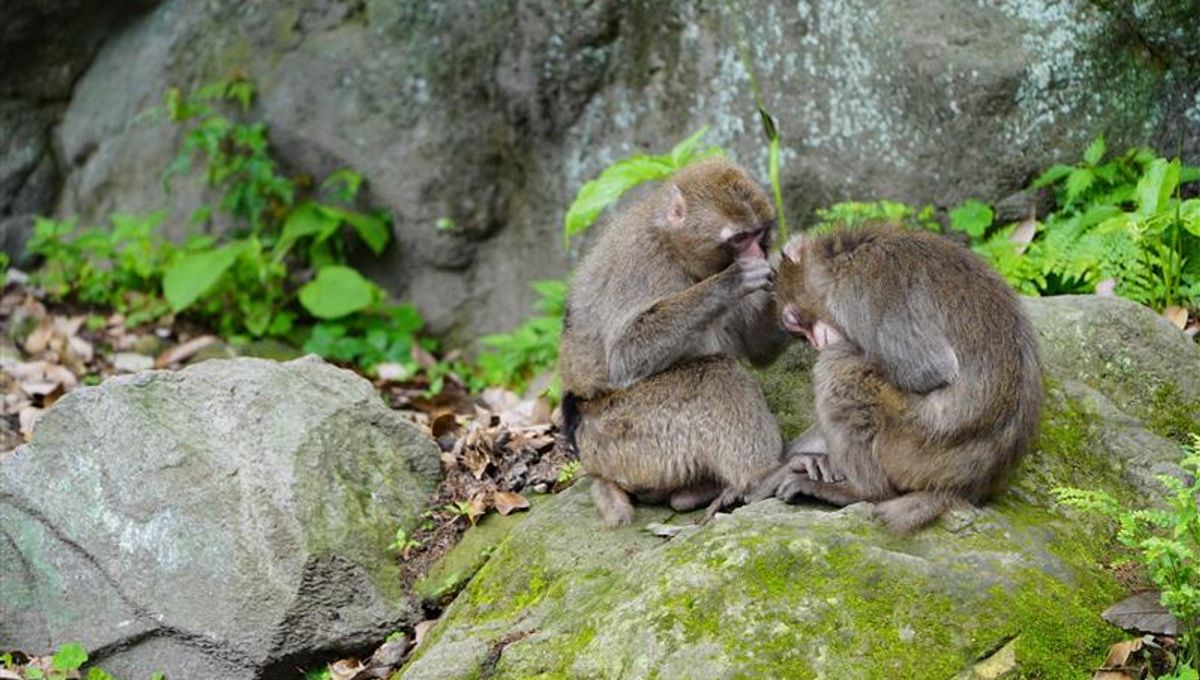
Same-sex sexual behavior has been observed in many non-human species across the world. It is now a widely recognized phenomenon, but a new study suggests that there is a sharp discrepancy between how common the behavior is and how often it is reported. According to this work, researchers often see same-sex sexual behavior in the mammals they study, but rarely publish information about it.
Homosexual behavior in the animal kingdom
Essentially, same-sex sexual behavior is any sexual act – including mounting, sexual penetration, oral sexual contact, or other forms of sexual stimulation – between members of the same sex.
Homosexual behavior is extremely common and widespread in animal species, Josh Davis, of the Natural History Museum, London and author of A Little Gay Natural History explained to IFLScience.
“Whilst it has only been officially recorded in around 1,500 species, this figure is likely a massive underestimate. This is because it can be found in pretty much every branch of the evolutionary tree, from beetles and butterflies to turtles and squirrels, so the idea that it is limited to just a few hundred species out of the 2.13 million described to date is incredibly unlikely.”
Explanations for the evolutionary value of this behavior vary, Davis added, depending on the animal being examined. For example, “the behavioural cues for flies are going to be different to those for primates.”
“By and large though, it has been suggested that homosexual behaviours could be beneficial for a range of aspects including social cohesion, stress release, and even just pure pleasure.”
But despite its frequency and widespread occurrence, same-sex sexual behavior is not often reported in the scientific literature. So what’s going on?
Publishing on homosexuality in animals
According to a new study published by Karyn A. Anderson, a graduate student in anthropology at the University of Toronto, and colleagues, the lack of studies on same-sex sexual behavior may come from the misperception that it is rare and therefore difficult to study systematically. In the past, this belief that it’s uncommon was also mixed with contemporary moralistic ideas that viewed it as deviant and “unnatural”. Of course, such thinking was often deployed in ethical debates about homosexuality in humans.
“Historically, there were definitely fears that if a researcher were to publish on these behaviours they might in turn get associated with them, but in modern times it seems as if there are other factors in play,” Davis told IFLScience.
Even as attitudes changed throughout the 20th century, the “rare” assumption has persisted in scientific literature, despite the number of recorded instances continuing to rise. What has been missing is a systematic approach, but there may be reasons for why this has not yet occurred.
Journals moving away from publishing short, anecdotal observations is a widespread problem in behavioural ecology as it means that occasional but interesting behaviours – such as homosexuality – often now go unreported.
Josh Davis
Anderson and her international team of colleagues believe certain methodological challenges, as well as this pervasive belief about the behavior’s rarity, may explain the gap in the publication record for this subject.
Their analysis showed that out of 65 researchers examining 52 different species, 77 percent observed same-sex sexual behavior but only 48 percent collected data on it. In addition, only 19 percent of the researchers published their findings.
Interestingly, the respondents to the research commented that their work was not influenced by sociopolitical factors. Instead, the responses generally fell into three categories – firstly, that they were unable to collect data due to competing research priorities; secondly, that the topics for publication did not rely on data related to this subject; and thirdly, that the behavior was too rare or “anecdotal” to be considered worthy for publication.
This latter point is important as it highlights a bias within the publication industry surrounding anecdotal evidence – if it is not “common, ” it is irrelevant. For instance, in the field of primatology, as the 21st century has gone on, there has been a shift towards quotative and statistical approaches, which are preferred to short narratives or anecdotal accounts.
“Journals moving away from publishing short, anecdotal observations is a widespread problem in behavioural ecology as it means that occasional but interesting behaviours – such as homosexuality – often now go unreported,” Davis said.
Anecdotes are extremely important for the study of things like same-sex sexual behavior, Anderson and colleagues also conclude, as they help us understand their relevance within the study of sexual behavior more generally.
“The availability of anecdotal reports of [same-sex sexual behaviour], therefore, serves to benefit the scientific community and allows us to better understand the variability and distribution of [same-sex sexual behavior] across mammals,” they write.
Expert surveys are therefore useful tools in wildlife biology, the team stress, especially in relation to behaviors that are not frequently reported or are believed to be rare. “Indeed, we found the use of an expert survey important, and even necessary, given that most respondents have not published their observations of [same-sex sexual behavior] in their study species. Expert surveys provide us with a tool to access and examine these behaviors on a broader scale.”
It was only through anecdotal reports and expert surveys that we see just how widespread same-sex sexual behavior is. Although this study drew on a relatively small pool of respondents, it supports the idea that future work should pay closer attention to the value of these less fashionable ways of collecting and transmitting information, especially for supposedly rare behaviors.
The paper is published in PLOS ONE.
Read an excerpt from A Little Gay Natural History and our exclusive interview with Josh Davis in the July 2024 issue of CURIOUS.
Source Link: Homosexuality Is Common In Animals So Why Do Scientists Rarely Talk About It?